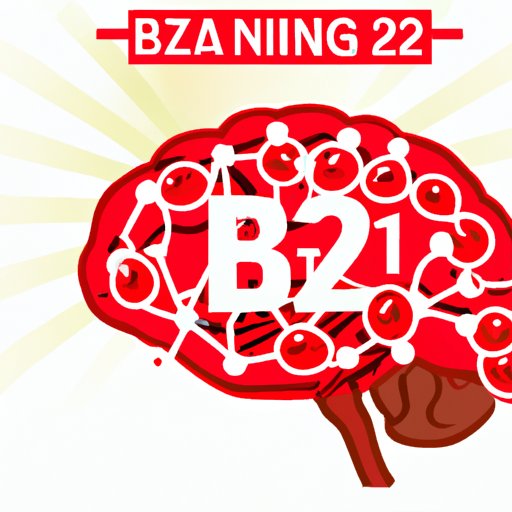Introduction
Vitamin B12 is an essential micronutrient that plays a vital role in many bodily functions. It is involved in DNA synthesis, amino acid metabolism, and energy production. Vitamin B12 is found primarily in animal products like meat, fish, eggs, and dairy, but there are also some vegan sources. Increasing your intake of vitamin B12 can help support optimal brain function, red blood cell production, nervous system health, metabolism, and energy levels.
Foods Rich in Vitamin B12
Animal sources are the most reliable way to get enough vitamin B12. Foods like beef, chicken, fish, and eggs are all rich in this nutrient. Dairy products like milk, cheese, and yogurt are also good sources of vitamin B12. Supplements are available for those who cannot get enough from their diet.
For vegans, there are still some good sources of vitamin B12. Seaweed, nutritional yeast, and certain brands of plant-based milks are all fortified with this essential nutrient. Fortified breakfast cereals and other processed foods may also contain vitamin B12, but it’s important to check the label to make sure.

Health Benefits of Vitamin B12
Vitamin B12 has many important health benefits. It helps to support brain function, red blood cell production, nervous system health, metabolism, and energy levels. It is also important for proper growth and development, as well as a healthy immune system. Here are some of the most important benefits of increasing your intake of vitamin B12:
Brain Function
Vitamin B12 is essential for proper brain function. It helps to regulate mood and cognitive function, as well as maintain healthy nerve cells. Studies have shown that low levels of vitamin B12 can lead to memory loss and confusion.
Red Blood Cell Production
Vitamin B12 is needed for the production of red blood cells, which carry oxygen throughout the body. Low levels of vitamin B12 can cause anemia, which can lead to fatigue and difficulty concentrating.
Nervous System Health
Vitamin B12 is important for the maintenance of a healthy nervous system. It helps to protect nerve cells from damage and keeps them functioning properly. Deficiencies in vitamin B12 can lead to numbness and tingling in the hands and feet.
Metabolism
Vitamin B12 is necessary for proper metabolism. It helps to break down carbohydrates, fats, and proteins and convert them into energy. Low levels of vitamin B12 can lead to weight gain and sluggish metabolism.
Energy Levels
Vitamin B12 helps to increase energy levels by aiding in the production of red blood cells and the metabolism of carbohydrates, proteins, and fats. Low levels of vitamin B12 can lead to fatigue and decreased energy levels.
A Guide to Vegan Sources of Vitamin B12
For vegans, it can be difficult to get enough vitamin B12 from their diets. Fortunately, there are some vegan sources of this essential nutrient. Seaweed, nutritional yeast, and certain brands of plant-based milks are all fortified with vitamin B12. There are also some fortified breakfast cereals and other processed foods that may contain this nutrient, so it’s important to read labels carefully.

The Role of Vitamin B12 in Metabolism
Vitamin B12 plays an important role in metabolism. It helps to synthesize DNA, metabolize amino acids, and produce energy. It also helps to regulate the nervous system and supports healthy red blood cell production. Without adequate levels of vitamin B12, these processes may not function properly.

How to Incorporate More Vitamin B12 into Your Diet
The best way to ensure you are getting enough vitamin B12 is to increase your intake of foods that are rich in this nutrient. Animal sources like beef, chicken, fish, eggs, and dairy are all good sources of vitamin B12. For vegans, there are some fortified plant-based options such as seaweed, nutritional yeast, and certain brands of plant-based milks.
If you feel that you are not getting enough vitamin B12 from your diet, you may want to consider supplementation. Speak to your healthcare professional before taking any supplements, as they may interact with other medications or be contraindicated for certain conditions. Regular checkups with a healthcare professional can help ensure that your vitamin B12 levels remain within a healthy range.
Conclusion
Vitamin B12 is an essential nutrient that plays an important role in many bodily functions. It helps to support brain function, red blood cell production, nervous system health, metabolism, and energy levels. Animal sources are the most reliable way to get enough vitamin B12, but there are also some vegan sources such as seaweed, nutritional yeast, and certain brands of plant-based milks. Increasing your intake of vitamin B12 rich foods and/or considering supplementation can help ensure that your levels remain within a healthy range.


